Neobugarrón: Heteroflexibility, Neoliberalism, and Latin/o American Sexual Practice.
How should we understand the bugarrón, a man who has sex with other men while regarding himself as heterosexual? Reaching beyond queer and gay studies, Ramón E. Soto-Crespo’s research suggests that this paradoxical figure mutated into what he calls the “neobugarrón,” a neoliberal market-oriented actor who used the traditional sexual practice as an optimizing strategy for manipulating the forces of globalization during the 1990s.
In Neobugarrón: Heteroflexibility, Neoliberalism, and Latin/o American Sexual Practice, Soto-Crespo chronicles the cultural modifications of bugarrón, a distinct male-male sexual practice in Latin/o America and the Caribbean, during the twentieth and twenty-first centuries. Working with and against Foucault and Kinsey to examine diverse works from anthropology, literature, cinema, and social media, he investigates a wide array of bugarrón sources, ranging from previously underexamined multimedia to ethnographies, fiction, films, and beyond. These works constitute a neobugarrón archive and attest to a sexual practice currently metamorphosing on the cusp of extinction. Soto-Crespo’s analysis challenges conventional understandings of “heteroflexible” sex between men and reveals a hitherto unnoticed transformation in neoliberal ecologies of bugarrón sexual practice.
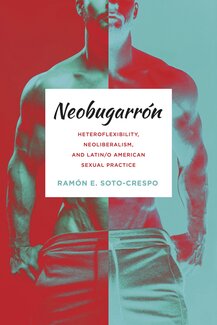
Rendered Obsolete: Energy Culture and the Afterlife of U.S. Whaling
Through the mid-nineteenth century, the US whaling industry helped drive industrialization and urbanization, providing whale oil to lubricate and illuminate the country. The Pennsylvania petroleum boom of the 1860s brought cheap and plentiful petroleum into the market, decimating whale oil's popularity. Here, from our modern age of fossil fuels, Jamie L. Jones uses literary and cultural history to show how the whaling industry held firm in US popular culture even as it slid into obsolescence. Jones shows just how instrumental whaling was to the very idea of "energy" in American culture and how it came to mean a fusion of labor, production, and the circulation of power. She argues that dying industries exert real force on environmental perceptions and cultural imaginations.
Analyzing a vast archive that includes novels, periodicals, artifacts from whaling ships, tourist attractions, and even whale carcasses, Jones explores the histories of race, labor, and energy consumption in the nineteenth-century United States through the lens of the whaling industry's legacy. In terms of how they view power, Americans are, she argues, still living in the shadow of the whale.
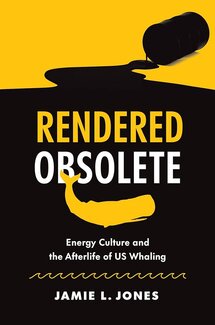
Medina by the Bay Scenes of Muslim Study and Survival
From the Black Power movement and state surveillance to Silicon Valley and gentrification, Medina by the Bay examines how multiracial Muslim communities in the San Francisco Bay Area survive and flourish within and against racial capitalist, carceral, and imperial logics. Weaving expansive histories, peoples, and geographies together in an ethnographic screenplay of cinematic scenes, Maryam Kashani demonstrates how sociopolitical forces and geopolitical agendas shape Muslim ways of knowing and being. Throughout, Kashani argues that contemporary Islam emerges from the specificities of the Bay Area, from its landscapes and infrastructures to its Muslim liberal arts college, mosques, and prison courtyards. Theorizing the Medina by the Bay as a microcosm of socioeconomic, demographic, and political transformations in the twentieth- and twenty-first centuries, Kashani resituates Islam as liberatory and abolitionist theory, theology, and praxis for all those engaged in struggle.

Critical Memory Studies: New Approaches
Bringing together a diverse array of new and established scholars and creative writers in the rapidly expanding field of memory studies, this collection creatively delves into the multiple aspects of this wide-ranging field. Contributors explore race-ing memory; environmental studies and memory; digital memory; monuments, memorials, and museums; and memory and trauma.
Organised around 7 sections, this book examines memory in a global context, from Kashmir and Chile to the US and UK. Featuring contributions on topics such as the Black Lives Matter movement; the AIDS crisis; and memory and the anthropocene, this book traces and consolidates the field while analysing and charting some of the most current and cutting-edge work, as well as new directions that could be taken.
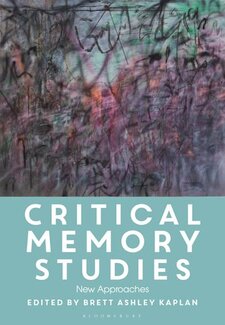
Faith in Exposure: Privacy and Secularism in the Nineteenth-Century United States
Recent legal history in the United States reveals a hardening tendency to treat religious freedom and sexual and reproductive freedom as competing, even opposing, claims on public life. They are united, though, by the fact that both are rooted in our culture’s understanding of privacy. Faith in Exposure shows how, over the course of the nineteenth century, privacy came to encompass such contradictions—both underpinning the right to sexual and reproductive rights but also undermining them in the name of religious freedom.
Drawing on the interdisciplinary field of secular studies, Faith in Exposure brings a postsecular orientation to the historical emergence of modern privacy. The book explains this emergence through two interlocking stories. The first examines the legal and cultural connection of religion with the private sphere, showing how privacy became a moral concept that informs how we debate the right to be shielded from state interference, as well as who will be afforded or denied this protection. This conflation of religion with privacy gave rise, the book argues, to a “secular sensibility” that was especially invested in authenticity and the exposure of hypocrisy in others.
The second story examines the development of this “secular sensibility” of privacy through nineteenth-century novels. The preoccupation of the novel form with private life, and especially its dependence on revelations of private desire and sexual secrets, made it the perfect vehicle for suggesting that exposure might be synonymous with morality itself. Each chapter places key authors into wider contexts of popular fiction and periodical press debates. From fears over religious infidelity to controversies over what constituted a modern marriage and conspiracy theories about abolitionists, these were the contests, Justine S. Murison argues, that helped privacy emerge as both a sensibility and a right in modern, secular America.
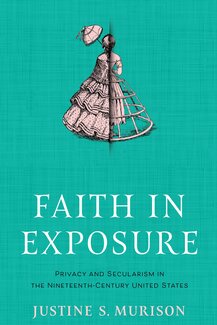
The Empire of Effects: Industrial Light and Magic and the Rendering of Realism
Just about every major film now comes to us with an assist from digital effects. The results are obvious in superhero fantasies, yet dramas like Roma also rely on computer-generated imagery to enhance the verisimilitude of scenes. But the realism of digital effects is not actually true to life. It is a realism invented by Hollywood—by one company specifically: Industrial Light & Magic.
The Empire of Effects shows how the effects company known for the puppets and space battles of the original Star Wars went on to develop the dominant aesthetic of digital realism. Julie A. Turnock finds that ILM borrowed its technique from the New Hollywood of the 1970s, incorporating lens flares, wobbly camerawork, haphazard framing, and other cinematography that called attention to the person behind the camera. In the context of digital imagery, however, these aesthetic strategies had the opposite effect, heightening the sense of realism by calling on tropes suggesting the authenticity to which viewers were accustomed. ILM’s style, on display in the most successful films of the 1980s and beyond, was so convincing that other studios were forced to follow suit, and today, ILM is a victim of its own success, having fostered a cinematic monoculture in which it is but one player among many.
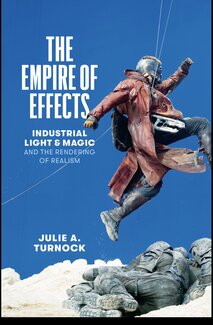
Monolingualism and Its Discontents
"What follows brings together scholars, writers, and translators working in fields that are rarely in conversation to see what new insights and frameworks these exchanges might generate. In that spirit of experimentation, it also brings together writers habituated to a variety of genres, both cultural critics and producers—to enrich our explorations of how we count languages and what counts as a language. In every sense, then, this cluster is conceived of as a space to propose new approaches, to pursue unexpected openings, to test hypotheses, and to revise assumptions. Some essays explore hip hop, jargon, and Mesoamerican pictorial writing as monolingual phenomena that challenge how we define language and the range of media we take into account (Calderwood, Chow, Garcia). Several examine the monolingualizing pressures of language policy implemented at the imperial, continental, national, settler-colonial, disciplinary, and familial level, documenting their dispossessive force but also their unforeseen and incalculable consequences (Ben Amor, Choi, Dowling, Fleming, Sorensen, Walkowitz, Watson). A number of essays examine the claims of monolingualism outside European models and histories (Ben Amor, Calderwood, Choi, Dowling, Garcia, Mani). All these essays dwell with acuity and subtlety on the generative and destructive power of monolingualism, asking us to reflect on how our disciplinary expertise and investments, our theories and methodologies, and our pedagogies and institutional practices can better account for the vitality, beauty, and world-building power of the languages that are our inheritance and that will shape our futures. What does our propensity to count languages in whole numbers miss? Rebecca Walkowitz's rousing call to rethink teaching and research in the discipline and more broadly the university through the lens of English as an “additional language” is inspired by a civic hospitality toward “the languages that operate both within and across literary histories” and the conclusion that we simply must “read literatures that begin in languages beyond English.” Her essay, like all the others in this cluster, points the way to other monolingualisms, and to that which is other than monolingualism." - Introduction to Monolingualism and Its Discontents
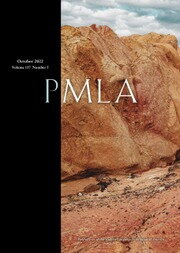
Chronic Aftershock: How 9/11 Shaped Present-Day France
The terrorist attacks of 11 September 2001 were a local event that nevertheless elicited strong reactions throughout the world. The unprecedented strike on the continental United States, its instantaneous broadcast, and its global stakes placed 9/11 at the centre of ideological debates that still rage today. The impact was especially felt in France.
Chronic Aftershock looks at the significance of 9/11 in France as documented by prominent politicians, public intellectuals, journalists, sociologists, political scientists, philosophers, novelists, and conspiracy theorists. In his comprehensive account Jean-Philippe Mathy addresses the rise of a small but influential group of self-described “anti-anti-Americans” who shared the views of American neoconservatives in support of regime change in Iraq; the media controversy involving French Evangelical churches’ response to the religious views of George W. Bush; the widespread “I am Charlie” movement following the attacks against the offices of Charlie Hebdo; and the unending French national debate on the place of the Muslim community in a secular, universalist republic. The book also considers the November 2015 Islamist attacks in Paris, often described as “the French September 11.”
Combining approaches from intellectual history, cultural studies, and literary criticism, Chronic Aftershock explores the legacy of 9/11 and recent instances of transatlantic divide to provide an innovative and timely assessment of the radicalized violence that remains a major threat in today’s world.

Hatred of Sex
Hatred of Sex links Jacques Rancière’s political philosophy of the constitutive disorder of democracy with Jean Laplanche’s identification of a fundamental perturbation at the heart of human sexuality. Sex is hated as well as desired, Oliver Davis and Tim Dean contend, because sexual intensity impedes coherent selfhood and undermines identity, rendering us all a little more deplorable than we might wish. Davis and Dean explore the consequences of this conflicted dynamic across a range of fields and institutions, including queer studies, attachment theory, the #MeToo movement, and “traumatology,” demonstrating how hatred of sex has been optimized and exploited by neoliberalism.
Advancing strong claims about sex, pleasure, power, intersectionality, therapy, and governance, Davis and Dean shed new light on enduring questions of equality at a historical moment when democracy appears ever more precarious.
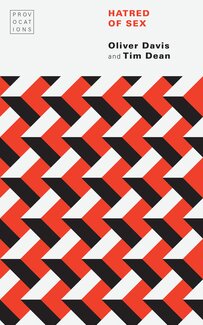
Germany from the Outside: Rethinking German Cultural History in an Age of Displacement
The nation-state is a European invention of the 18th and 19th centuries. In the case of the German nation in particular, this invention was tied closely to the idea of a homogeneous German culture with a strong normative function. As a consequence, histories of German culture and literature often are told from the inside-as the unfolding of a canon of works representing certain core values, with which every person who considers him or herself “German” necessarily must identify. But what happens if we describe German culture and its history from the outside? And as something heterogeneous, shaped by multiple and diverse sources, many of which are not obviously connected to things traditionally considered “German”?
Emphasizing current issues of migration, displacement, systemic injustice, and belonging, Germany from the Outside explores new opportunities for understanding and shaping community at a time when many are questioning the ability of cultural practices to effect structural change. Located at the nexus of cultural, political, historiographical, and philosophical discourses, the essays in this volume inform discussions about next directions for German Studies and for the Humanities in a fraught era.
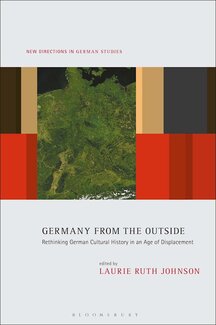
100 English Building
608 South Wright Street
Urbana, Illinois 61801